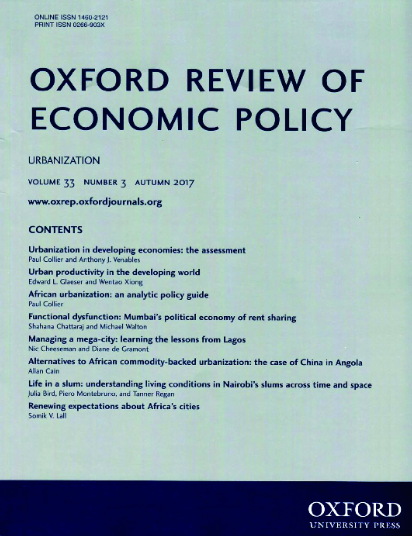Building trust in digital trade will require a rethink of trade policy-making
IF 1.8
2区 经济学
Q2 ECONOMICS
引用次数: 4
Abstract
In 2019, Shinzo Abe, then Prime Minister of Japan, stated that if the world wanted to achieve the benefits of the data-driven economy, members of the World Trade Organization should find a common approach to combining ‘data free flow with trust’. However, he never explained what these rules should look like and how nations might find an internationally accepted approach to such rules. In this paper, I argue that trade policy-makers must pay closer attention to users’ concerns if they truly want to achieve ‘data free flow with trust’. I begin with an examination of what the most recent digital trade/ecommerce agreements say about trust and discuss whether they actually meet user concerns. Next, I turn to three different examples of online problems that users have expressed concerns about, namely internet shutdowns/censorship, disinformation, and ransomware, describing how these may yield both trade distortions and less trust online. I argue that policy-makers should address these issues if they believe trade agreements should build trust in cross-border data flows. Moreover, I argue how policy-makers respond to user concerns is as important as what they include in trade agreements. Finally, I note that trade negotiators will need to rethink how they involve the broad public in digital trade policy-making, while recognizing that trade policy agreements may not be the best place to address these problems.建立对数字贸易的信任需要重新思考贸易决策
2019年,时任日本首相安倍晋三表示,如果世界想要从数据驱动型经济中获益,世界贸易组织成员国应该找到一种将“数据自由流动与信任”结合起来的共同方法。然而,他从未解释这些规则应该是什么样子,以及各国如何找到一种国际上接受的方法来执行这些规则。在本文中,我认为,如果贸易政策制定者真正想要实现“有信任的数据自由流动”,就必须更加关注用户的担忧。我首先考察了最新的数字贸易/电子商务协议对信任的看法,并讨论了它们是否真正满足了用户的需求。接下来,我将转向用户表达担忧的三个不同的网络问题例子,即互联网关闭/审查、虚假信息和勒索软件,并描述这些问题如何导致贸易扭曲和网络信任减少。我认为,如果政策制定者认为贸易协定应该建立对跨境数据流的信任,他们就应该解决这些问题。此外,我认为政策制定者如何回应用户的担忧与他们在贸易协定中纳入什么内容同样重要。最后,我指出,贸易谈判代表需要重新思考如何让广大公众参与数字贸易政策制定,同时认识到贸易政策协定可能不是解决这些问题的最佳场所。
本文章由计算机程序翻译,如有差异,请以英文原文为准。
求助全文
约1分钟内获得全文
求助全文
来源期刊

Oxford Review of Economic Policy
ECONOMICS-
CiteScore
12.50
自引率
1.50%
发文量
41
期刊介绍:
The Oxford Review of Economic Policy is a refereed journal which is published quarterly. Each issue concentrates on a current theme in economic policy, with a balance between macro- and microeconomics, and comprises an assessment and a number of articles. It gives a valuable appraisal of economic policies worldwide. While the analysis is challenging and at the forefront of current thinking, articles are presented in non-technical language to make them readily accessible to all readers. The Oxford Review is aimed at a wide audience including government, business and policy-makers, as well as academics and students. It is required reading for those who need to know where research is leading.
 求助内容:
求助内容: 应助结果提醒方式:
应助结果提醒方式:


